Robert Burns's most famous poems and literary works
Including Auld Lang Syne and Address to a Haggis
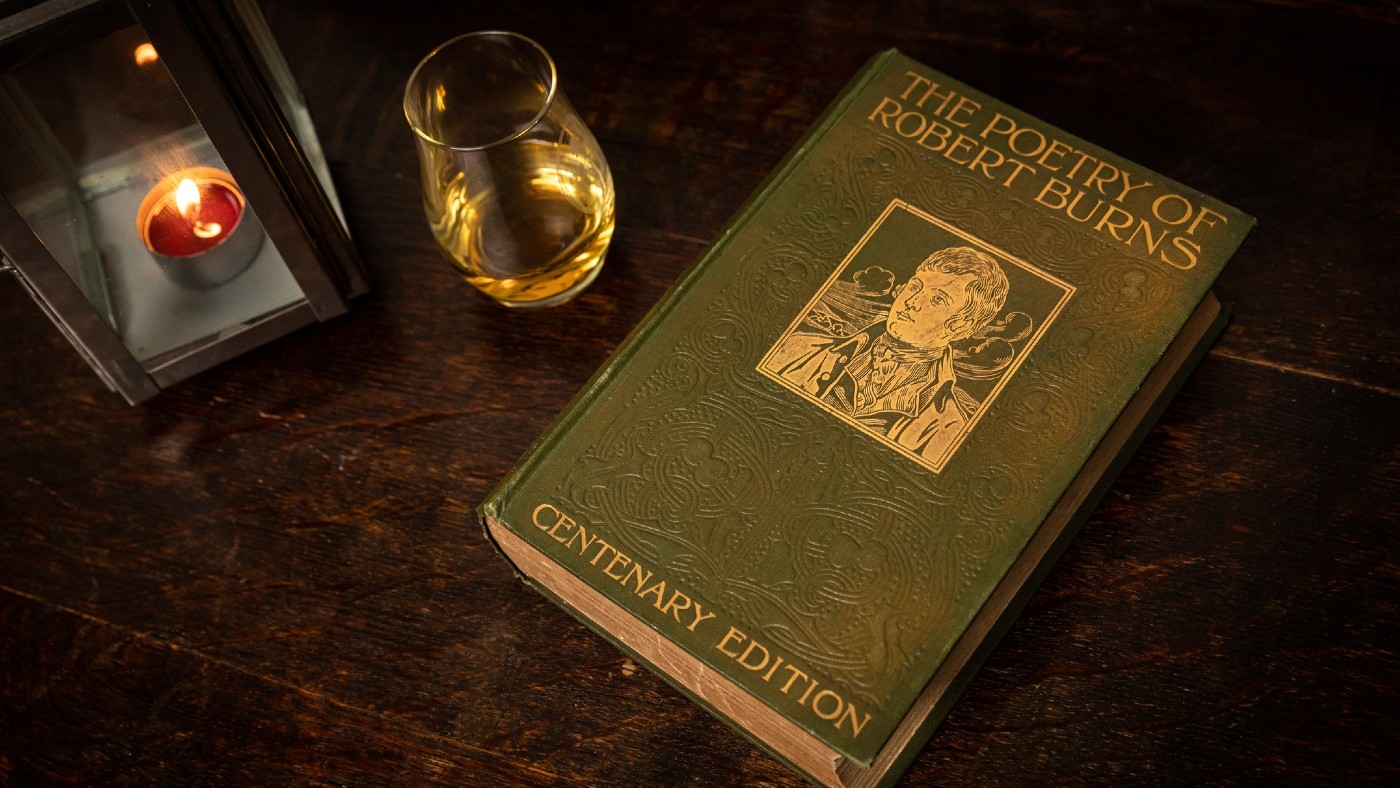
A free daily email with the biggest news stories of the day – and the best features from TheWeek.com
You are now subscribed
Your newsletter sign-up was successful
More than two centuries after the death of writer and lyricist Robert Burns, his words are still recited around the world on New Year's Eve.
Auld Lang Syne might be the Scot's most famous poem, but he is recognised globally for his words of contemplation on "universal themes of love and nature", said the BBC.
Burns – also known as Robbie Burns, Rabbie Burns and Scotland’s favourite son – even has a national day dedicated to him, with traditional suppers enjoyed by many on 25 January each year.
The Week
Escape your echo chamber. Get the facts behind the news, plus analysis from multiple perspectives.

Sign up for The Week's Free Newsletters
From our morning news briefing to a weekly Good News Newsletter, get the best of The Week delivered directly to your inbox.
From our morning news briefing to a weekly Good News Newsletter, get the best of The Week delivered directly to your inbox.
A "poster boy for the Scottish identity", we take a look back at some of the poet's most famous and best-loved works.
Address to a Haggis, 1786
Fair fa' your honest, sonsie face,
Great chieftain o' the pudding-race!
Aboon them a' ye tak your place,
A free daily email with the biggest news stories of the day – and the best features from TheWeek.com
Painch, tripe, or thairm:
Weel are ye wordy o'a grace
As lang's my arm.
The groaning trencher there ye fill,
Your hurdies like a distant hill,
Your pin wad help to mend a mill
In time o'need,
While thro' your pores the dews distil
Like amber bead.
His knife see rustic Labour dight,
An' cut you up wi' ready sleight,
Trenching your gushing entrails bright,
Like ony ditch;
And then, O what a glorious sight,
Warm-reekin', rich!
Then, horn for horn, they stretch an' strive:
Deil tak the hindmost! on they drive,
Till a' their weel-swall'd kytes belyve
Are bent like drums;
Then auld Guidman, maist like to rive,
Bethankit! hums.
Is there that owre his French ragout
Or olio that wad staw a sow,
Or fricassee wad make her spew
Wi' perfect sconner,
Looks down wi' sneering, scornfu' view
On sic a dinner?
Poor devil! see him owre his trash,
As feckless as wither'd rash,
His spindle shank, a guid whip-lash;
His nieve a nit;
Thro' bloody flood or field to dash,
O how unfit!
But mark the Rustic, haggis-fed,
The trembling earth resounds his tread.
Clap in his walie nieve a blade,
He'll mak it whissle;
An' legs an' arms, an' heads will sned,
Like taps o' thrissle.
Ye Pow'rs, wha mak mankind your care,
And dish them out their bill o' fare,
Auld Scotland wants nae skinking ware
That jaups in luggies;
But, if ye wish her gratefu' prayer
Gie her a haggis!
Auld Lang Syne, 1788
Should auld acquaintance be forgot,
And never brought to mind?
Should auld acquaintance be forgot,
And auld lang syne!
For auld lang syne, my jo,
For auld lang syne,
We'll tak a cup o' kindness yet,
For auld lang syne.
And surely ye'll be your pint stowp!
And surely I'll be mine!
And we'll take a cup o' kindness yet,
For auld lang syne.
We twa hae run about the braes,
And pou'd the gowan fine;
But we've wander'd mony a weary fitt,
Sin' auld lang syne.
We twa hae paidl'd in the burn,
Frae morning sun till dine;
But seas between us braid hae roar'd
Sin' auld lang syne.
And there's a hand, my trusty fiere!
And gie's a hand o' thine!
And we'll tak a right gude-willie-waught,
For auld lang syne.
For auld lang syne, my jo,
For auld lang syne,
We'll tak a cup o' kindness yet,
For auld lang syne.
My Heart's In The Highlands, 1789
Farewell to the Highlands, farewell to the North,
The birth-place of Valour, the country of Worth;
Wherever I wander, wherever I rove,
The hills of the Highlands for ever I love.
My heart's in the Highlands, my heart is not here;
My heart's in the Highlands a-chasing the deer;
A-chasing the wild-deer, and following the roe,
My heart's in the Highlands wherever I go.
Farewell to the mountains high covered with snow;
Farewell to the straths and green valleys below;
Farewell to the forests and wild-hanging woods;
Farewell to the torrents and loud-pouring floods.
My heart's in the Highlands, my heart is not here;
My heart's in the Highlands a-chasing the deer;
A-chasing the wild-deer, and following the roe,
My heart's in the Highlands wherever I go.
A Red, Red Rose, 1794
O my Luve's like a red, red rose,
That's newly sprung in June:
O my Luve's like the melodie,
That's sweetly play'd in tune.
As fair art thou, my bonie lass,
So deep in luve am I;
And I will luve thee still, my dear,
Till a' the seas gang dry.
Till a' the seas gang dry, my dear,
And the rocks melt wi' the sun;
And I will luve thee still, my dear,
While the sands o' life shall run.
And fare-thee-weel, my only Luve!
And fare-thee-weel, a while!
And I will come again, my Luve,
Tho' 'twere ten thousand mile!
To A Mouse, On Turning Her Up In Her Nest With The Plough, 1785
Wee, sleekit, cow'rin, tim'rous beastie,
O, what a panic's in thy breastie!
Thou need na start awa sae hasty,
Wi' bickering brattle!
I wad be laith to rin an' chase thee,
Wi' murd'ring pattle!
I'm truly sorry man's dominion,
Has broken nature's social union,
An' justifies that ill opinion,
Which makes thee startle
At me, thy poor, earth-born companion,
An' fellow-mortal!
I doubt na, whiles, but thou may thieve;
What then? poor beastie, thou maun live!
A daimen icker in a thrave
'S a sma' request;
I'll get a blessin wi' the lave,
An' never miss't!
Thy wee bit housie, too, in ruin!
It's silly wa's the win's are strewin!
An' naething, now, to big a new ane,
O' foggage green!
An' bleak December's winds ensuin,
Baith snell an' keen!
Thou saw the fields laid bare an' waste,
An' weary winter comin fast,
An' cozie here, beneath the blast,
Thou thought to dwell-Till crash! the cruel coulter past
Out thro' thy cell.
That wee bit heap o' leaves an' stibble,
Has cost thee mony a weary nibble!
Now thou's turn'd out, for a' thy trouble,
But house or hald,
To thole the winter's sleety dribble,
An' cranreuch cauld!
But, Mousie, thou art no thy lane,
In proving foresight may be vain;
The best-laid schemes o' mice an 'men
Gang aft agley,
An'lea'e us nought but grief an' pain,
For promis'd joy!
Still thou art blest, compar'd wi' me
The present only toucheth thee:
But, Och! I backward cast my e'e.
On prospects drear!
An' forward, tho' I canna see,
I guess an' fear!
The Winter of Life, 1794
But lately seen in gladsome green,
The woods rejoic'd the day,
Thro' gentle showers, the laughing flowers
In double pride were gay:
But now our joys are fled
On winter blasts awa;
Yet maiden May, in rich array,
Again shall bring them a'.
But my white pow, nae kindly thowe
Shall melt the snaws of Age;
My trunk of eild, but buss or beild,
Sinks in Time's wintry rage.
Oh, Age has weary days,
And nights o' sleepless pain:
Thou golden time, o' Youthfu' prime,
Why comes thou not again!
To a Louse, On Seeing one on a Lady's Bonnet at Church, 1786
Ha! whare ye gaun, ye crowlan ferlie!
Your impudence protects you sairly:
I canna say but ye strunt rarely,
Owre gawze and lace;
Tho' faith, I fear ye dine but sparely,
On sic a place.
Ye ugly, creepan, blastet wonner,
Detested, shunn'd, by saunt an' sinner,
How daur ye set your fit upon her,
Sae fine a Lady!
Gae somewhere else and seek your dinner,
On some poor body.
Swith, in some beggar's haffet squattle;
There ye may creep, and sprawl, and sprattle,
Wi' ither kindred, jumping cattle,
In shoals and nations;
Whare horn nor bane ne'er daur unsettle,
Your thick plantations.
Now haud you there, ye're out o' sight,
Below the fatt'rels, snug and tight,
Na faith ye yet! ye'll no be right,
Till ye've got on it,
The vera topmost, towrin height
O' Miss's bonnet.
My sooth! right bauld ye set your nose out,
As plump an' gray as onie grozet:
O for some rank, mercurial rozet,
Or fell, red smeddum,
I'd gie you sic a hearty dose o't,
Wad dress your droddum!
I wad na been surpriz'd to spy
You on an auld wife's flainen toy;
Or aiblins some bit duddie boy,
On 's wylecoat;
But Miss's fine Lunardi, fye!
How daur ye do 't?
O Jenny dinna toss your head,
An' set your beauties a' abread!
Ye little ken what cursed speed
The blastie's makin!
Thae winks and finger-ends, I dread,
Are notice takin!
O wad some Pow'r the giftie gie us
To see oursels as others see us!
It wad frae monie a blunder free us
An' foolish notion:
What airs in dress an' gait wad lea'e us,
And ev'n Devotion!
-
 Political cartoons for February 15
Political cartoons for February 15Cartoons Sunday's political cartoons include political ventriloquism, Europe in the middle, and more
-
 The broken water companies failing England and Wales
The broken water companies failing England and WalesExplainer With rising bills, deteriorating river health and a lack of investment, regulators face an uphill battle to stabilise the industry
-
 A thrilling foodie city in northern Japan
A thrilling foodie city in northern JapanThe Week Recommends The food scene here is ‘unspoilt’ and ‘fun’
-
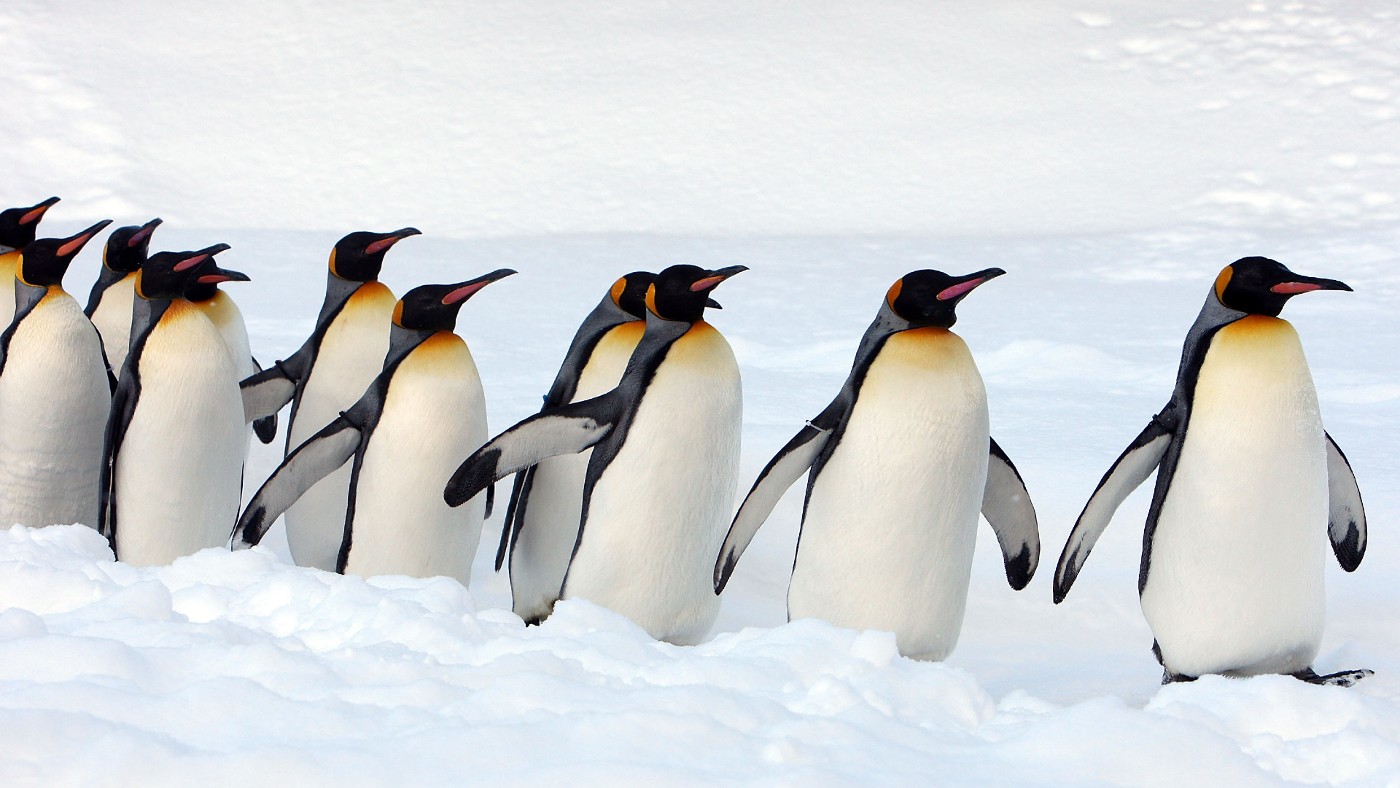 NHS tells Scots to walk like penguins
NHS tells Scots to walk like penguinsTall Tales Walk like penguins in the snow, says NHS
-
 Woman solves 'rude neighbour' mystery
Woman solves 'rude neighbour' mysteryTall Tales And other stories from the stranger side of life
-
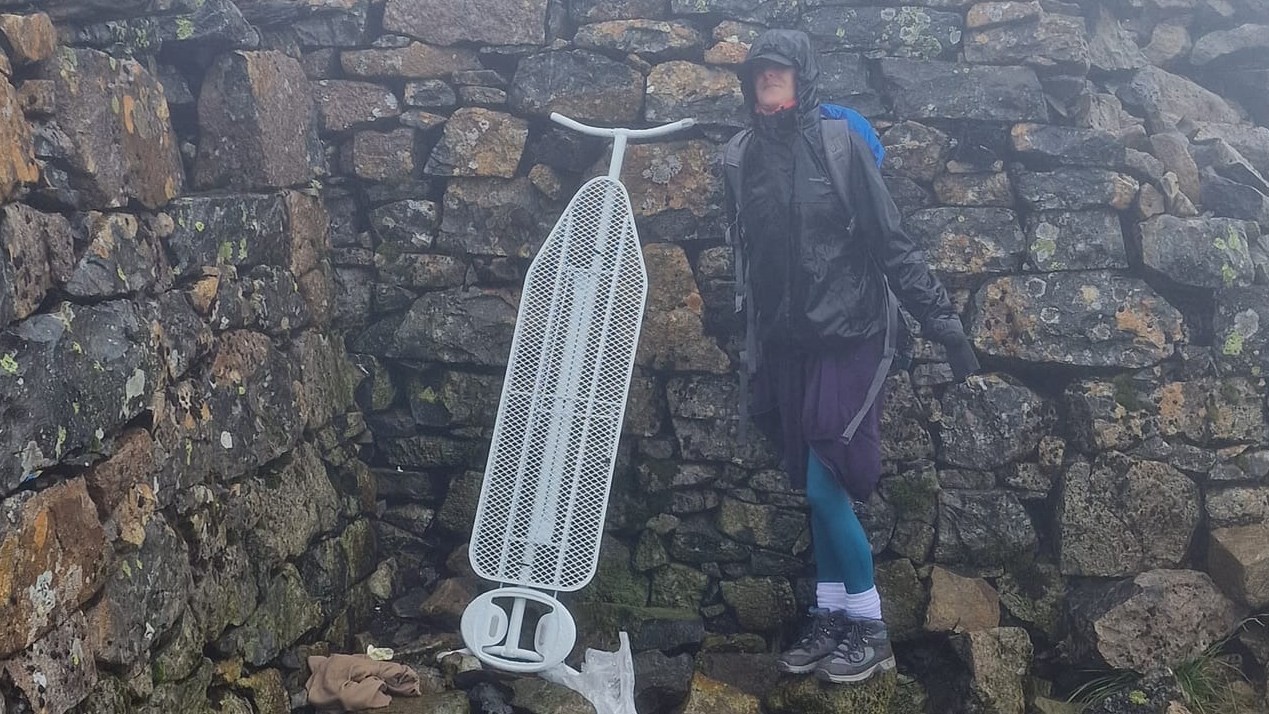 'Extreme ironing' blamed for Ben Nevis board
'Extreme ironing' blamed for Ben Nevis boardTall Tales And other stories from the stranger side of life
-
 Screaming Beatles fans embarrassed George Harrison’s mother
Screaming Beatles fans embarrassed George Harrison’s motherfeature And other stories from the stranger side of life
-
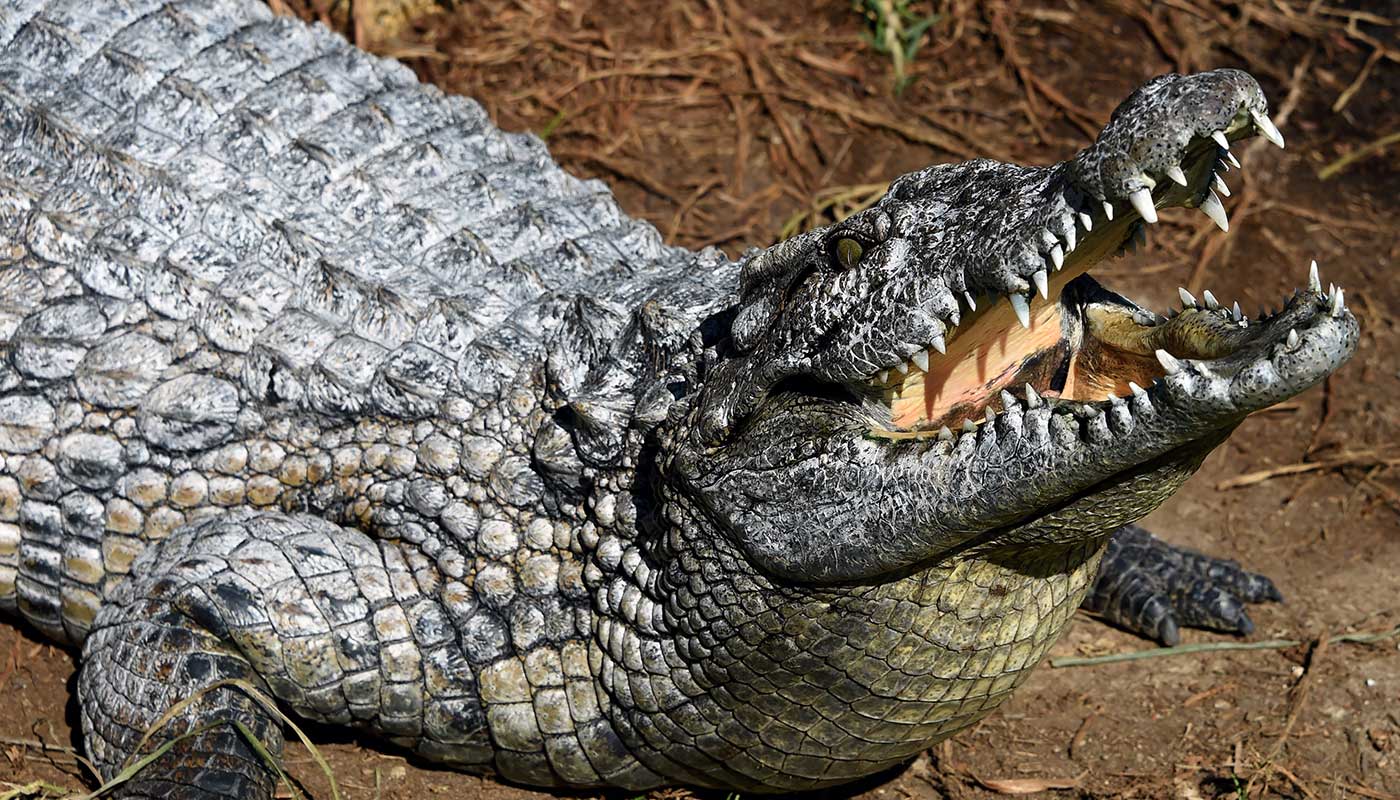 First crocodile virgin birth recorded
First crocodile virgin birth recordedfeature And other stories from the stranger side of life
-
 Joggers told to wear helmets amid bird terror
Joggers told to wear helmets amid bird terrorfeature And other stories from the stranger side of life
-
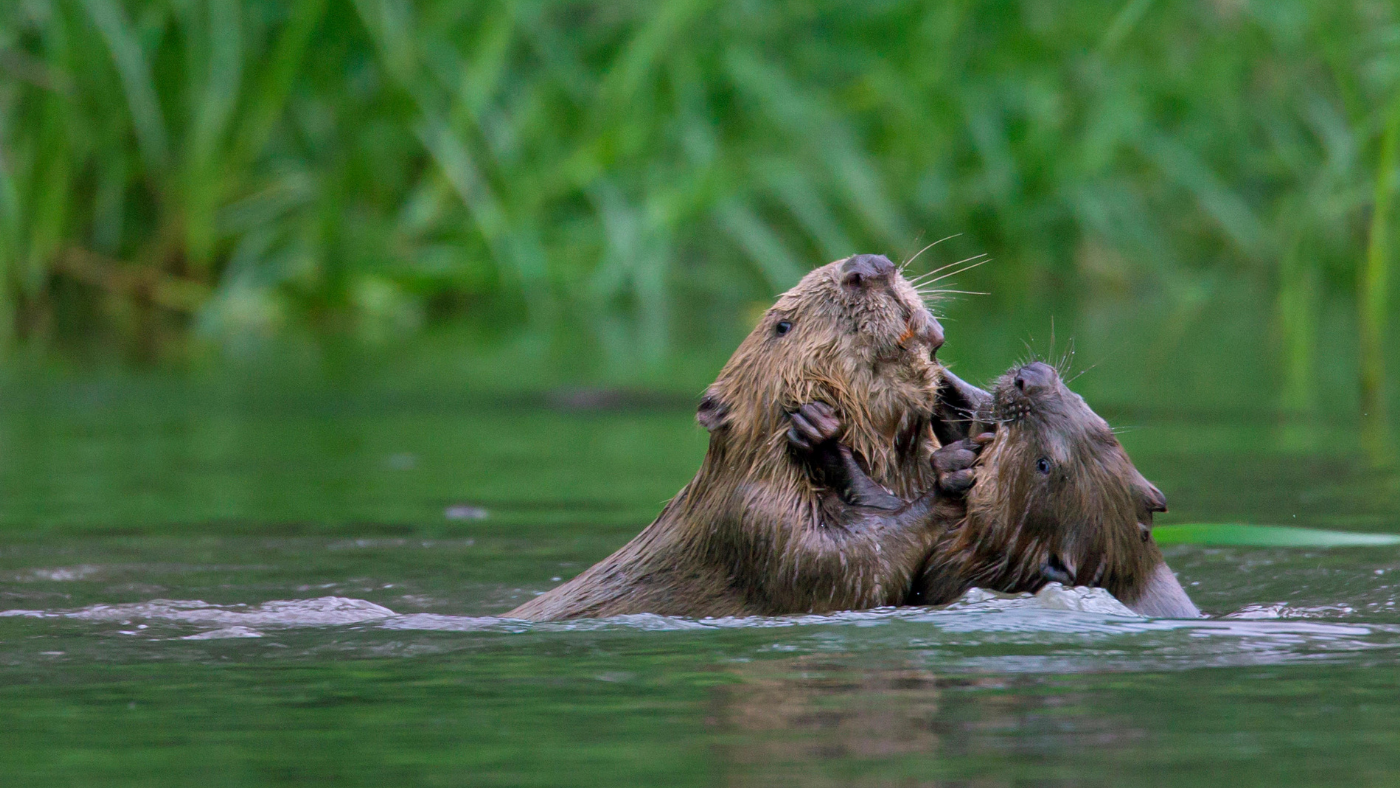 Otter accused of killing relocated Loch Lomond beavers
Otter accused of killing relocated Loch Lomond beaversSpeed Read The dead beaver kits were moved from Tayside to RSPB Scotland reserve last month
-
 Why energy firms are sending in bailiffs during cost-of-living crisis
Why energy firms are sending in bailiffs during cost-of-living crisisfeature A Times investigation found that debt collectors had been force-fitting meters in people’s homes